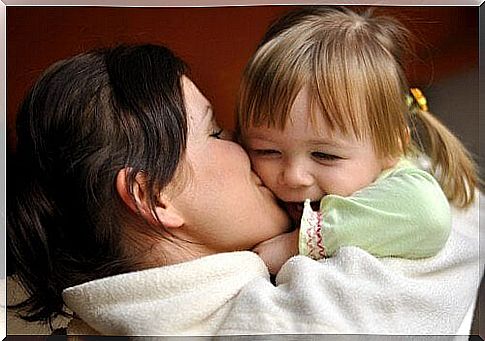6 Symptoms Of A Lack Of Emotional Care

The lack of emotional affection from parents is very harmful to children who are in the midst of their development. Healthy emotional relationships that nurture affection and genuine interest are just as important to a child’s healthy development as food and education.
Like everyone else, your child needs lots of loving words, kisses, hugs and lots of affection. Expressing affection in different ways will help the child develop optimally in the brain.
Lack of emotional affection for children
If you believe that your child is not at risk of being emotionally neglected – for example because they live in a house where they see their parents every day and where they do not experience extreme abuse or abandonment – you could be wrong.

A family that has little time and space to develop emotions through healthy coexistence is prone to emotional damage.
If you’re wondering how to show your child healthy emotions, one of the easiest ways is to have good, quality time with family.
To do this, you should try to include entertaining activities in the family’s calendar, where everyone involved experiences beautiful and unforgettable moments.
Games, household chores, or a simple snack are great ways to hang out together.
Always remember that the most important thing is not the quantity but the quality of the time you spend together.
Symptoms of a lack of emotional affection for children
A child who is not shown enough emotional affection may have certain symptoms or psychological patterns. Some of them are:
- Anxiety. Anxiety is a symptom of emotional neglect that affects both children and adults. Lack of focus, the constant need to eat, and impatience are strong symptoms of a lack of emotional affection in children.
- Poor development of language and social interaction. The right language development is mainly achieved through a good upbringing from an early age. However, a very important part is acquired through interacting with other people. If a child’s social skills are insufficient or non-existent (the result of poor socialization and care), it is more difficult for them to express themselves than other children. Language acquisition will then take place more slowly.
- Inability to control impulses and aggressiveness. If a child has difficulty controlling their impulses, if they have sudden changes in behavior and are generally more aggressive, then you need to check whether they are receiving too little attention. This is how you can mitigate these negative behaviors.
- Lack of trust in other people. It is very difficult for a child who hardly receives attention to develop trust in other people. This even applies to people in the family. The child feels misunderstood and prefers to shut down to avoid emotional distress.

- Little attention. If a child spends enough time with his parents in an understanding environment, he or she learns at a young age to listen to what he is told, because he has understood that it is important to be heard. However, if your child is inattentive, it can be another symptom of emotional neglect.
- Lack of ability to express feelings in a healthy way. Feelings are not easy to control or express, and it is even more complicated for a child who is deprived of emotional affection. A child who is emotionally neglected usually does not know how to deal with his feelings because no adult has taught him that.
If such behavior patterns are not changed in a timely manner, these problems can affect the child for a lifetime.
A child who does not know how to express their feelings is likely to become a self-centered and emotionally dependent adult with poor social skills.









